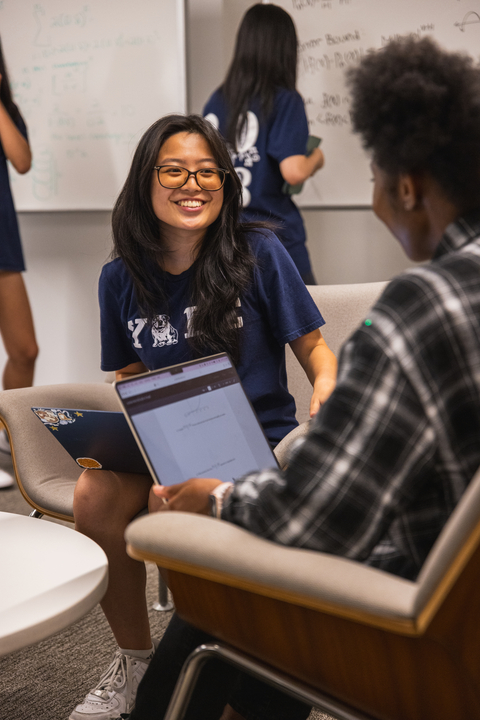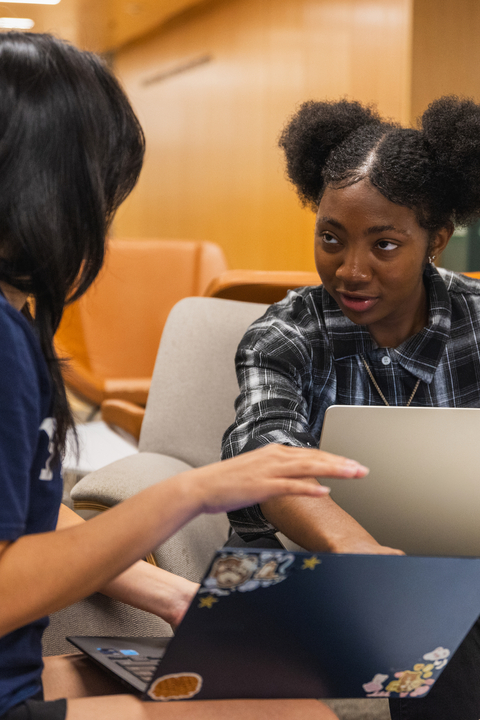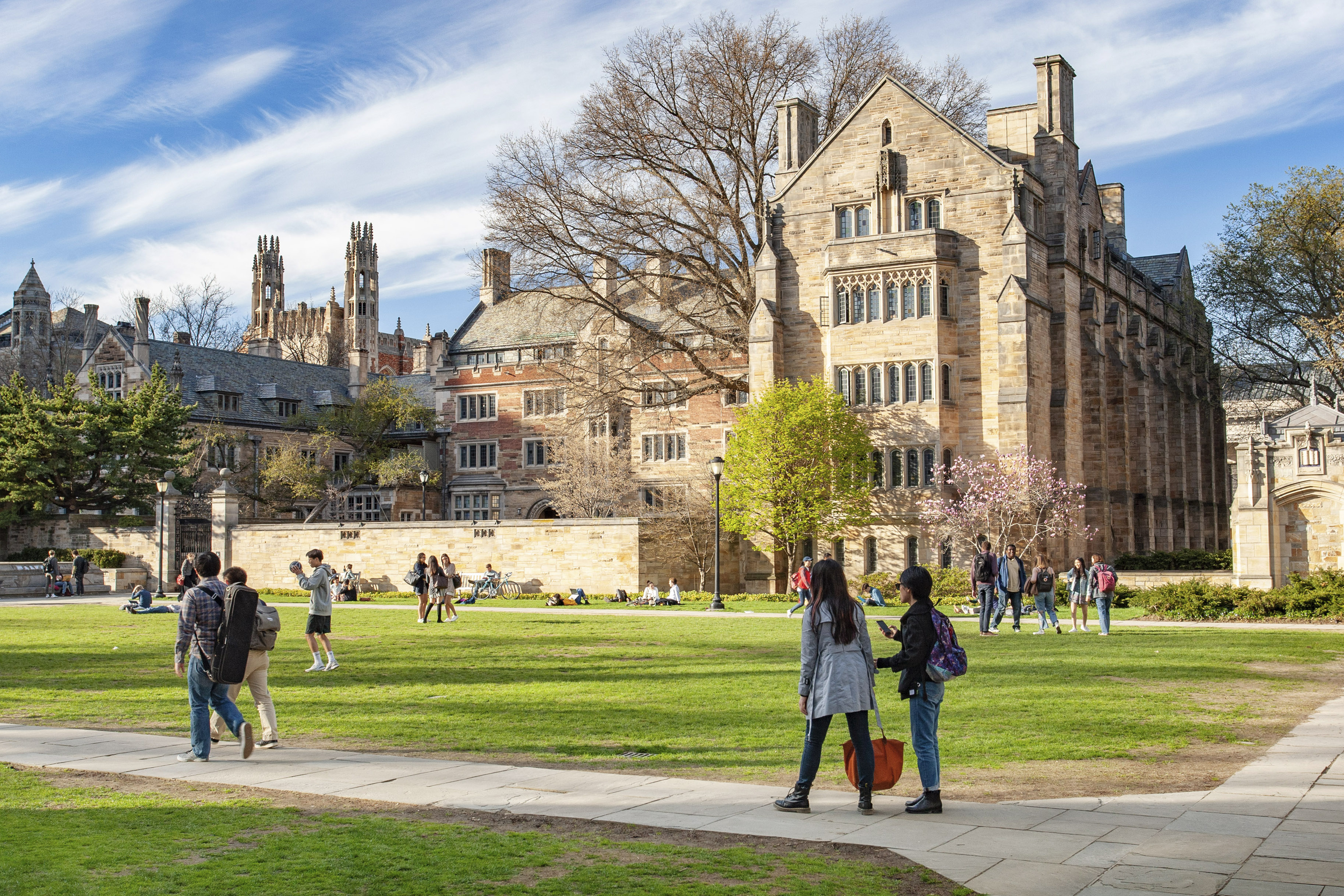All of the Office of Educational Opportunity’s programming is asset-based; our mentorship begins with the substantive strengths and abilities every student brings to Yale. The OEO’s role is to help all students further develop and enhance the skills, experiences, and relationships that will help them thrive academically, pre-professionally, socially, and personally.
Success for Students
Many students at Yale have disabilities, neurodivergence, and other conditions that can affect how they learn and engage with campus life. The Office of Educational Opportunity (OEO) offers programming and mentorship for students with disabilities, including those who have not received a formal diagnosis, through its Disability Peer Mentor Program and Learning Specialist support. These programs are part of a network of supports at Yale, including accommodations through Student Accessibility Services and personal support at Yale Health.
Disability Peer Mentorship Programs
Yale offers two peer mentorship programs to support students with disabilities.
-
In collaboration with Disability Empowerment for Yale (DEFY), the Office of Educational Opportunity offers Disability Peer Mentors for any undergraduate or graduate student with disabilities (does not need formal diagnosis). Mentors provide support and guidance on academic and social challenges, fostering self-advocacy and resilience. Disability Peer Mentor Request Form
- The Student Accessibility Services (SAS) Peer Liaisons help first-years with disabilities navigate SAS accommodations, resources, and support. Learn more about PLs.

Discussion and Social Groups
Our Disability Peer Mentors lead biweekly discussion groups for students with ADHD, Autism, and Chronic Illness. These groups are designed to help students share support, resources, and strategies for navigating Yale. For a schedule of discussion group meetings, check out the Office of Educational Opportunity Workshops & Events on YaleConnect: https://yaleconnect.yale.edu/PoorvuAcademicStrategies/club_signup

Learning Specialist
Students whose disabilities affect their approaches to learning may find it helpful to meet individually with our Learning Specialist to discuss learning challenges and new strategies for their academic work. This is an excellent choice for students who want personalized and dedicated support to achieve their academic goals.
The Learning Specialist helps students with more intensive learning needs, focusing on learning skills and executive functions. They also assist in managing other challenges that interfere with learning, such as mental health or related conditions.
Learn more about our Learning Specialist, Geoffrey Canales.

Frequently Asked Questions
The OEO oversees the Disabilities Peer Mentor Program, which supports students navigating Yale with a disability. This program offers 1-1 peer mentorship for both undergraduate and graduate students at Yale. Matching is offered based on student preferences, from connecting with a mentor with a similar disability to working with mentors who share similar academic interests or other identities. Monthly ADHD, chronic illness, and autism discussion groups are available to support students as they navigate Yale. Students can also work with a learning specialist for focused attention. Finally, students can attend the broad array of OEO student success programming, including workshops, events, and other peer mentorship programs.
We work with undergraduates and graduate students. Students come with a variety of concerns. You may be working with a physical challenge or a temporary difficulty. You may be seeking support for un-diagnosed differences. In any case, we want to empower your overall learning.
For students who have prior paperwork and formal accommodations, contact Student Accessibility Services. Find out everything you need here.
New conditions can emerge or long-term conditions can be formally diagnosed during your time at Yale. If you have wondered whether you may need to pursue a formal diagnosis and are looking for support along the way, schedule an appointment with our learning specialist Geoffrey Canales (geoffrey.canales@yale.edu) or with Student Accessibility Services (SAS).
Reach out to Student Accessibility Services.
Student Accessibility Services has resources devoted to assistive technology, which can be accessed on their SAS website.
-
Apply to be an Office of Educational Opportunity (OEO) Peer Mentor
As an OEO peer mentor, you will help your fellow students learn how to actively engage with Yale’s opportunities. Consider applying today!
“Disability at Yale Survival Guide”
Download the Disability Survival Guide written by the student advocacy organization, Disability Empowerment for Yale (DEFY).
We’re here to help!
Reach out to the Poorvu Center team if you have any questions or to learn more about our programs.

